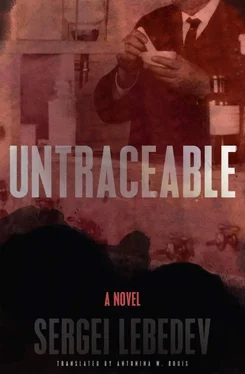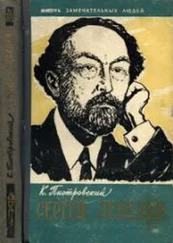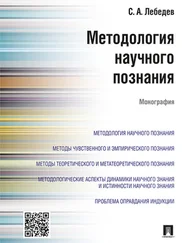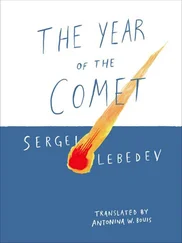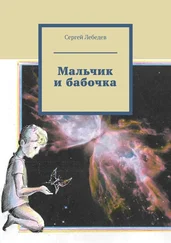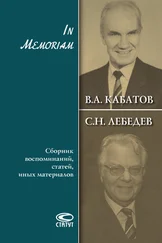Сергей Лебедев - Untraceable
Здесь есть возможность читать онлайн «Сергей Лебедев - Untraceable» весь текст электронной книги совершенно бесплатно (целиком полную версию без сокращений). В некоторых случаях можно слушать аудио, скачать через торрент в формате fb2 и присутствует краткое содержание. Город: New York, Год выпуска: 2021, ISBN: 2021, Издательство: New Vessel Press, Жанр: Современная проза, на английском языке. Описание произведения, (предисловие) а так же отзывы посетителей доступны на портале библиотеки ЛибКат.
- Название:Untraceable
- Автор:
- Издательство:New Vessel Press
- Жанр:
- Год:2021
- Город:New York
- ISBN:978-1-939931-90-0
- Рейтинг книги:3 / 5. Голосов: 1
-
Избранное:Добавить в избранное
- Отзывы:
-
Ваша оценка:
- 60
- 1
- 2
- 3
- 4
- 5
Untraceable: краткое содержание, описание и аннотация
Предлагаем к чтению аннотацию, описание, краткое содержание или предисловие (зависит от того, что написал сам автор книги «Untraceable»). Если вы не нашли необходимую информацию о книге — напишите в комментариях, мы постараемся отыскать её.
Untraceable — читать онлайн бесплатно полную книгу (весь текст) целиком
Ниже представлен текст книги, разбитый по страницам. Система сохранения места последней прочитанной страницы, позволяет с удобством читать онлайн бесплатно книгу «Untraceable», без необходимости каждый раз заново искать на чём Вы остановились. Поставьте закладку, и сможете в любой момент перейти на страницу, на которой закончили чтение.
Интервал:
Закладка:
The triangle was coming together. The subject had been forced to give up the substance and then was blackmailed with a charge of revealing a secret. He was probably also paid, paid a lot—his product was invaluable. Then when an internal investigation of the murder was started, the subject got spooked. He realized they could make him the scapegoat. Or quietly get rid of him to keep him from giving evidence. He took the money and the product and got away.
Who could have blackmailed him? It must have been the security chief. A colonel, an officer of the active reserve, who had joined state security through Party selection from the manufacturing sector. He had a degree in technology. He was quite capable of orienting himself in these new conditions, figuring out just what he was guarding, trapping the subject, and organizing the sale. Conveniently, the security chief could blame the theft on Kalitin when he defected. That’s probably why they allowed him to escape, Shershnev thought.
Wisely, Shershnev did not reveal any documented interest in the security chief. He thought he knew his name, a simple name like the ones given to them on their fake passports. He had seen it among other signatures on some secret agency document.
The former head of security, if he had returned from the active reserve, could be one of the people issuing the order to get rid of the subject.
That did not make the order illegal in Shershnev’s eyes. He would have executed a personal order from the bosses, unconnected to the interests of the service. For example, he would have killed that banker. But now he was feeling unwanted sympathy for the subject. They were connected like sound and echo, like a pair of substances composing a binary poison. The scientist created a substance, Shershnev deployed it; they shared all the real work, took the risk. Shershnev sensed it was wrong for them now to be once again forced together.
Shershnev looked at Grebenyuk. The major was asleep, or pretending to be. Neat little houses flashed by the windows. The conductor was serving coffee from the restaurant car. He stood up to stretch, rolled his shoulders, and the young woman across the aisle—in good shape, she probably worked out—gave him an understanding smile. Shershnev saw his reflection in the window out of the corner of his eye; the man at whom the woman smiled. Suddenly Shershnev wanted to remain as that person, an unknown passenger traveling from Point A to Point B, to get off the train with her in a suburb. With the full brunt of his character, Shershnev attacked himself for that thought. He felt anger rising against the subject, who had somehow tricked him into compassion.
The conductor mumbled the station name. Grebenyuk opened his eyes. One more stop, and then the end. The destination. Prague.
CHAPTER 13
There was one more part in the beautiful epic of the Island, never completed for Kalitin, that he would happily have excluded. The final years. The chapter of collapse and betrayal. Black, unwanted pages. Kalitin tried not to remember them. But today one, the very first, came on its own.
He had been given a sign that the Island would no longer be the same. But Kalitin didn’t see it, didn’t understand its significance. Perhaps because the first to feel the underground din were not humans but animals—like the secret pulse of a coming earthquake that humans could not sense.
It was the Island’s golden period, the zenith of its capabilities. Unfortunately, Zakharyevsky, its founding father, had died suddenly. And soon after, like a faithful dog, the old head of security died.
Kalitin became head of the main laboratory, the heart of the Island. He could not aim for Zakharyevsky’s position due to his young age and administrative “weight.” The nominal head was one of Zakharyevsky’s deputies, a gray man strong in bureaucratic dealings; like that minion of the General Secretary Andropov who was half-dead but took the throne of his deceased master for a year. Everyone understood that Kalitin was next in line for the throne; it was a required exchange, an intermediate move.
The new security chief, the head Cerberus, seemed good to Kalitin at first. He had been friendly with the predecessor, but he had been a dinosaur, a relic of the cannibalistic times, who knew nothing about science. The new fellow represented a different generation; he had a degree in chemistry and let him know that he supported him, understood, would facilitate things and wanted to be friends.
It was the Island’s golden time, the season to harvest glory. The closed city had grown. Thanks to Zakharyevsky’s efforts, there were several more laboratories. New residential buildings were rapidly rising.
Research was conducted on a broad scale. Zakharyevsky had taken over several promising areas that were not exactly suited to the Island’s original profile—well, so what, everyone took as much as they could, and Kalitin didn’t have a problem with that.
The army was fighting for the umpteenth year in the East, bogging itself down ever deeper into a partisan war. The scientists were reading intelligence materials stolen from the United States about Korea and Vietnam; the distant hills in Afghanistan did not have jungles, so defoliants were useless, but the experience of smoking people out was helpful—out of caves, tunnels, culverts that the mujahedeen had turned into cover and supply lines.
The Island had specialists in air, atmosphere, and ventilation; architects, technicians, and speleologists working on what to release and how to release it into an enclosed space with a complex configuration so that the substance would easily be diffused with a natural or forced air stream without collecting only in the upper layers or precipitating only to the lower ones.
Kalitin made a proposal. It was effective but expensive. The military wanted something cheaper. They brought in a group of specialists in biological weapons and suggested holding comparative field tests. This was a crude violation, for the Island testing field was not intended for that kind of experimentation.
Zakharyevsky would have been able to fend them off. But they hammered his former deputy and got through him.
At the edge of the field, by the river, there were karst caves and sinkholes. Someone came up with the brilliant idea of doing the tests there in conditions that were exactly like the battle areas. They found two noncontiguous caves, sealed all the exits, measured the volume, set up compressors by the entrance, and ran the hoses. The outside specialists, who knew the economy and effectiveness of their substances, were certain they would succeed. The idea was to seal the caves after the substances were pumped in and open them the next day, sending a team in hazmat suits to tally results.
They trucked in the monkeys. Usually the experienced soldiers guarding the zoo culled the most violent and the weakest, shooting them. But here they used them all—the military wanted a large-scale experiment, and the lab didn’t want to waste its best material on an experiment that might interfere with their own project.
The monkeys were pushed into the caves and then they waited an hour. They assumed the primates needed time to find levels and holes for themselves, and then they started pumping. The generals, professors, the entire retinue were ready to leave. The tables were set at the Island hotel and the steam baths were heated in the cottages. A yellow cistern of beer—an Island specialty—was cooling in a special chamber, and waitresses and women skilled in revelry, brought in by the security department, were waiting.
The alarm was raised by Lieutenant Kalimullin, an old-timer on the Island, commander of one of the guard units, a steppe dweller by lineage and the nature of his wild soul, who considered the Island supernatural. He once brought Kalitin—for no concrete reason—some steppe foxes caught in a snare, shedding, bald, vicious, gnawing at the bars of the cage.
Читать дальшеИнтервал:
Закладка:
Похожие книги на «Untraceable»
Представляем Вашему вниманию похожие книги на «Untraceable» списком для выбора. Мы отобрали схожую по названию и смыслу литературу в надежде предоставить читателям больше вариантов отыскать новые, интересные, ещё непрочитанные произведения.
Обсуждение, отзывы о книге «Untraceable» и просто собственные мнения читателей. Оставьте ваши комментарии, напишите, что Вы думаете о произведении, его смысле или главных героях. Укажите что конкретно понравилось, а что нет, и почему Вы так считаете.
